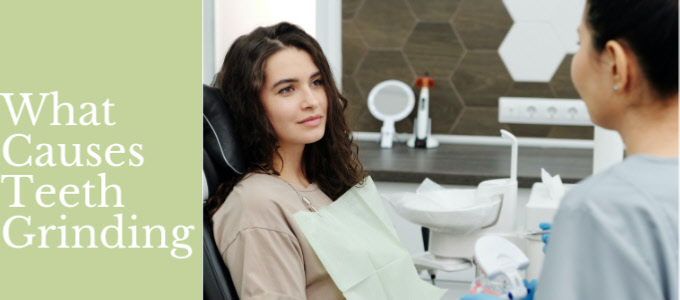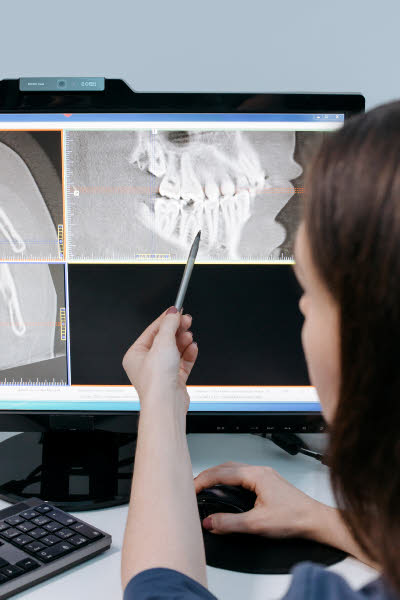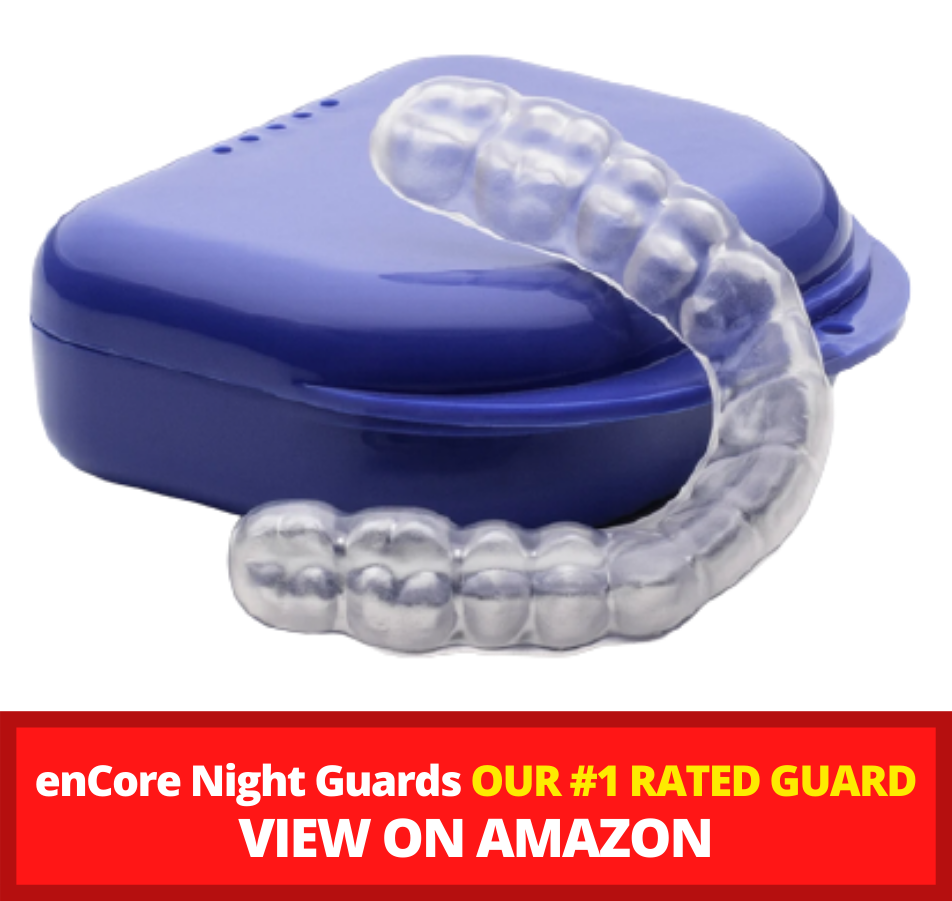Table of Contents

There are a lot of people who clench and grind their teeth occasionally. Occasional teeth grinding, or medically known as bruxism, can’t typically cause you any harm, but if teeth grinding continues regularly, then the teeth may be damaged, accompanied by other oral health problems and complications (1).
Causes And Risk Factors
Doctors still don’t fully understand what exactly causes bruxism, however, many agree that it can be caused by a combination of psychological, physical, and genetic factors.
- Sleep bruxism can be the sleep-related chewing activity that is associated with arousals while sleeping.
- Awake bruxism can be caused by emotions like anger, stress, anxiety, tension, and frustration. Or it can also be a habit or coping strategy.
- Age. Bruxism is quite common in young children, however, it typically goes away by the time one reaches adulthood.
- Personality type. If one has a competitive, aggressive, or hyperactive personality type, the risk of developing bruxism increases.
- Medications as well as other substances. Bruxism can also be the side effect of certain psychiatric medications, like some antidepressants. Drinking alcohol or caffeinated beverages, smoking tobacco, or using recreational drugs can increase the likelihood of developing bruxism as well.
- Family members who have bruxism. Sleep bruxism usually occurs in families. In case you have bruxism, then your other family members may also have it or the history of it.
- Other disorders. Bruxism may be associated with certain mental health as well as medical disorders like Parkinson’s disease, gastroesophageal reflux disorder, epilepsy, dementia, night terrors, ADHD (attention-deficit/hyperactivity disorder) as well as sleep-related disorders like sleep apnea.
How To Find Out if You Grind Teeth
Since grinding usually occurs during sleeping, a lot of people remain unaware of the fact that they grind teeth. But it still has some telltale symptoms, such as having a constant, dull headache as well as sore jaw the moment you wake up. At other times, your loved one may be the one informing you about the fact that you grind teeth during sleeping.
If you suspect that you are grinding your teeth at night, talk to the dentist. They will examine your jaw and mouth for any signs of bruxism, like excessive wear on teeth and jaw tenderness.
Why Is Grinding Of Your Teeth Harmful
In certain cases, chronic teeth grinding can result in loosening, fracturing, or loss of teeth. In case teeth grinding is chronic, it can wear one’s teeth down to stumps. If this happens, the crowns, root canals, bridges, implants, complete dentures, or partial dentures will be needed.
Not only does severe grinding damage your teeth as well as result in tooth loss, but it may also affect the jaws. It can even change your face’s appearance.
What Can You Do In Order To Stop Grinding Your Teeth
Your dentist will fit you with the mouth guard for protecting teeth from grinding while sleeping.
If stress is the thing causing the grinding of your teeth, then ask the dentist or doctor about options for reducing your stress. Some of the options can be attending stress counseling, taking part in the exercise program, obtaining the prescription for muscle relaxants as well as consulting the physical therapist. If it is a sleeping disorder causing teeth grinding, then treating it can eliminate or reduce the grinding habit.
Other Tips to Stop Teeth Grinding
- Avoiding alcohol. Grinding intensifies after alcohol consumption.
- Don’t chew on pens or pencils. Avoid chewing gum too since it allows the jaw muscles to become more used to clenching, increasing the likelihood of you grinding your teeth.
- Cut back on foods as well as drinks that contain caffeine, like chocolate, colas, and coffee.
- Try to train yourself not to grind or clench your teeth. Every time you catch yourself clenching or grinding teeth during the day, try positioning a tip of your tongue right between your teeth. By doing this, you will train the jaw muscles to relax.
Grinding Teeth In Children
Approximately fifty to thirty percent of children tend to grind their teeth. They do this during two peak times – when the baby teeth finally emerge and when permanent teeth come in. The majority of children tend to lose their teeth grinding habit once those two sets of teeth come in more fully.
The following tips can help your child to stop grinding the teeth:
- Decrease the stress, especially before they go to bed.
- Try stretching exercises or massage for relaxing the muscles.
- Ensure that your child remains hydrated. Dehydration is linked to teeth grinding.
- Ask the dentist to monitor the child’s teeth in case they are a grinder.
Diagnosis And Evaluation
During a regular dental exam, your dentist will check for any signs of bruxism.
In case you have any signs, then your dentist will look for changes in mouth and teeth throughout several visits to determine if a process is progressive as well as whether you require treatment.

Identifying The Cause
If the dentist suspects that their patient has bruxism, they will try to identify its cause by asking a patient questions about medications they may use, their sleep habits, general dental health, and daily routine. To evaluate the extent of bruxism, the dentist can check for:
- Obvious dental abnormalities like missing or broken teeth.
- Tenderness in the jaw muscles.
- Any other damage to the teeth, the underlying bone, as well as the inside of the cheeks by using X-rays.
The dental exam can also detect some other disorders that may cause similar ear or jaw pain like temporomandibular joint or TMJ disorders, as well as other health conditions and dental problems.
Treatment
In a lot of cases, treatment isn’t really necessary. The majority of kids tend to outgrow bruxism without any treatment, and a lot of adults don’t clench or grind their teeth terribly enough to need therapy. However, in case a problem is too severe, options can include dental approaches, as well as therapies and medications for preventing more tooth damage while relieving discomfort or jaw pain. Try talking with your doctor or dentist to determine the best option for you.


